As RV lovers, we all want to ensure our trips are safe and memorable. However, when things don’t go as planned, it can be a severe cause for concern, especially when it comes to carbon monoxide in our RVs. The last thing you need is a carbon monoxide detector that keeps beeping for no apparent reason. If you’re looking for ways to fix this issue, you’ve come to the right place. In this blog, we will look at some of the causes of the beeping and how to fix them.
Table of Contents
Carbon Monoxide: What It Is
It’s the odorless, colorless gas that can cause serious harm to you and your family – carbon monoxide. This invisible killer is responsible for hundreds of deaths each year. Here we’ll explore what carbon monoxide is, how it can harm you, and what you can do to prevent it.
Carbon monoxide, or CO, is a gas that is produced when fossil fuels are burned. This can include anything from gas-powered vehicles to home appliances like furnaces and stoves. While these activities normally produce small amounts of CO, problems can arise when there isn’t enough ventilation to properly remove the gas from an enclosed space. This can lead to dangerous levels of CO buildup, which can have serious health consequences. [1]
One of the biggest dangers of CO is that it is completely odorless and colorless. This means that you can’t see, taste, or smell it, making it difficult to detect. Symptoms of CO poisoning can include headaches, nausea, dizziness, and confusion. In severe cases, it can even lead to unconsciousness or death. Because of this, it’s important to know the warning signs and take steps to prevent CO buildup in your home. [1]
To protect yourself and your family from the dangers of CO, it’s important to have working CO detectors in your home. These devices are designed to alert you when dangerous levels of CO are present, giving you time to evacuate and seek medical attention if necessary. It’s recommended that you have at least one detector on each level of your home, and that they are placed near sleeping areas.
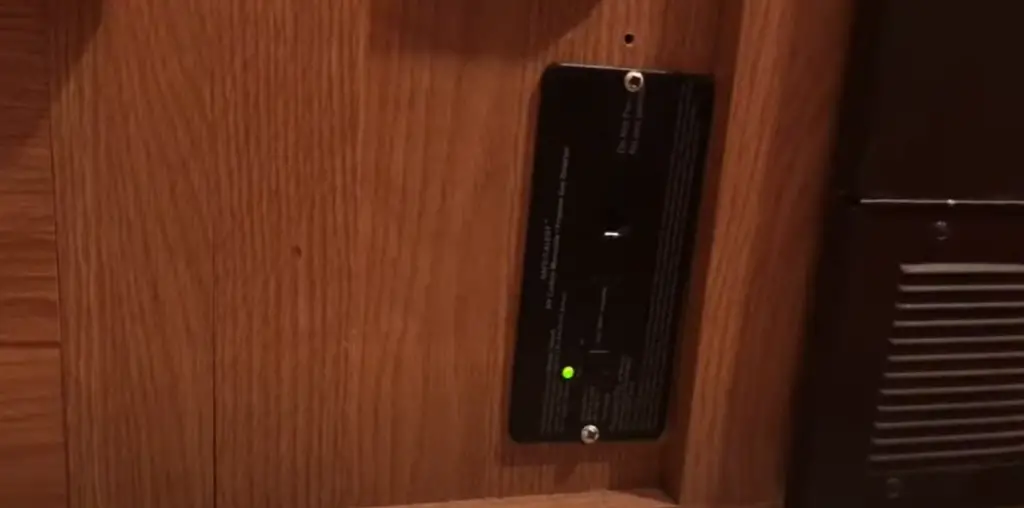
In addition to having CO detectors, there are several steps you can take to prevent CO buildup in your home. This includes regular maintenance of gas and oil appliances, ensuring that chimneys and vents are properly installed and functioning, and avoiding the use of outdoor appliances like grills or generators indoors. If you suspect that there is a CO leak in your home, evacuate immediately and contact the appropriate authorities to have the problem repaired.
Carbon monoxide can be a serious threat to you and your family, but by learning how it is produced, how it can harm you, and what you can do to prevent it, you can take steps to protect yourself and your loved ones. Remember to have working CO detectors in your home, to regularly maintain appliances, and to avoid the use of outdoor appliances indoors. With these precautions in place, you can breathe easy knowing that you are safe from this invisible killer.
How Does Carbon Monoxide Detector Work?
RV carbon monoxide detectors work similarly to residential detectors, using sensors to monitor the level of CO in the air. Most modern devices use electrochemical sensors, which are highly sensitive and accurate, to detect even low levels of CO. When the detector senses high levels of CO, it will sound an alarm to alert you of the danger.
When shopping for an RV carbon monoxide detector, you’ll want to look for a few key features. First, make sure the detector is UL listed, meaning it meets safety standards set by Underwriters Laboratories. You’ll also want to consider the type of power source the detector uses – some models run on batteries, while others are hardwired to your RV’s electrical system. [2]
An RV carbon monoxide detector is a crucial safety device that every RVer should have. By monitoring the level of CO in the air, these detectors can help prevent carbon monoxide poisoning and keep you and your loved ones safe on the road. When choosing a detector, be sure to look for a UL-listed model with an accurate electrochemical sensor and a reliable power source. With the right detector, you can enjoy your travels with peace of mind knowing that you’re protected against this deadly gas.
Possible Reasons for Carbon Monoxide Detector Beeping
Carbon monoxide is one of the leading causes of accidental poisoning in homes. The gas is commonly known as the “silent killer” because it is odorless, tasteless, and colorless. Carbon monoxide detectors are an essential safety measure in every home as they alert you to the presence of the gas. However, if your carbon monoxide detector starts beeping, it can be quite alarming and confusing.
One of the most common reasons why your carbon monoxide detector is beeping is because of a low battery. Carbon monoxide detectors are designed to give a beep warning when the battery is low. When the battery begins to run low, there will be inconsistency in the amount of power going to the device, and the detector will start to beep. Change the battery immediately when it starts to beep, to ensure proper functioning of the device. [3]
Another possible reason for the carbon monoxide detector beeping is a malfunctioning sensor. Carbon monoxide detectors have sensors that measure the amount of carbon monoxide in the air. If the sensor becomes faulty, it may give out random readings, leading to the beeping of the detector. In this case, replace your carbon detector immediately. Make sure you purchase a quality detector with superior accuracy to avoid a faulty one. [3]
Continuous exposure of the detector to smoke, dust or other environmental factors may leave the sensor contaminated and lead to frequent false beeps. In the event you see dirt, dust, or any other debris inside the sensor, clean it immediately. You can use a vacuum cleaner or a soft brush to clean the detector inside out. Make sure to avoid the use of cleaning agents.
Lastly, high humidity can also be a reason for your detector’s unusual behavior. Extreme humid conditions may cause an obstruction in the device leading to beeping warnings. The moisture in the air and high temperature only make it difficult for the detector to function properly. You can place the detector strategically to avoid placement in areas of high humidity or use detectors with humid proof-features.
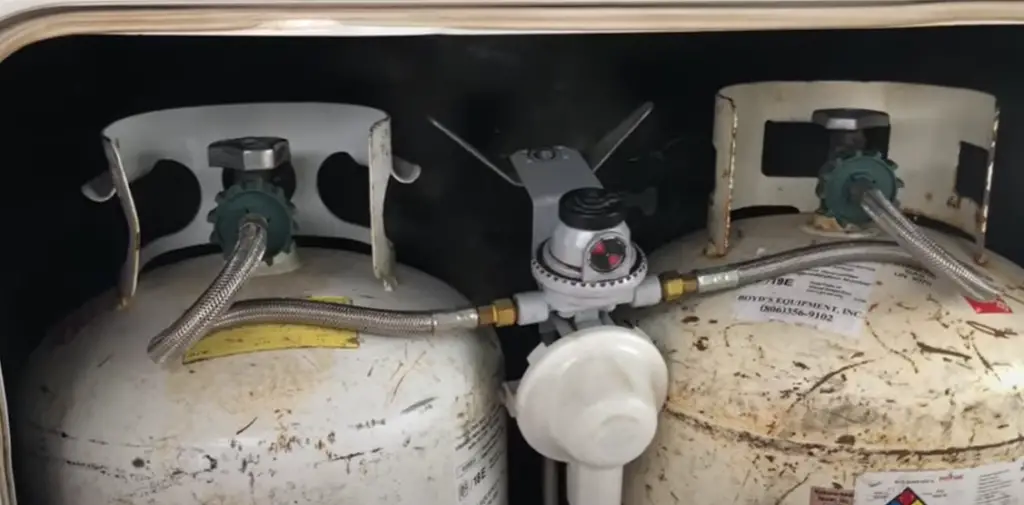
Carbon monoxide detectors help to safeguard us from the dangers of carbon monoxide poisoning, a threat we cannot smell, taste or see.
Forest River RV Carbon Monoxide Detector: All You Need to Know
Traveling in an RV is a fun and exciting experience. However, safety measures should always be taken to ensure that the trip is enjoyable. Carbon monoxide poisoning is a significant threat to the RV lifestyle. This toxic gas can be released by appliances such as a furnace, generators, and stoves that run on propane.
The Forest River RV carbon monoxide detector is a reliable, efficient, and easy-to-install device. One of its best features is its ability to detect low levels of carbon monoxide, which gives RV occupants enough time to react and take preventive measures. Additionally, this detector comes with a digital display that shows the exact level of carbon monoxide in the air, making it easier for occupants to assess the seriousness of the situation. Finally, this device is battery-operated, which means that it still can function even if there is no electricity supply available.
One of the significant drawbacks of the Forest River RV carbon monoxide detector is its price. Indeed, compared to other carbon monoxide detectors on the market, this device comes at a higher cost. Additionally, some RV owners report that this detector is quite sensitive and can activate even when low levels of carbon monoxide are detected. Finally, some customers have experienced reduced battery life compared to other detectors, which means that they need to change batteries more frequently.
While the price of the Forest River RV carbon monoxide detector may be a deal-breaker for some RV owners, it is crucial to consider what you’re getting for your money. You need to consider the device’s reliability, accuracy, and ease of use. Also, pay attention to the battery life, as you don’t want to replace batteries frequently. Finally, if you have a pet or a child who may accidentally disable the detector, you should consider one with a tamper-resistant design.
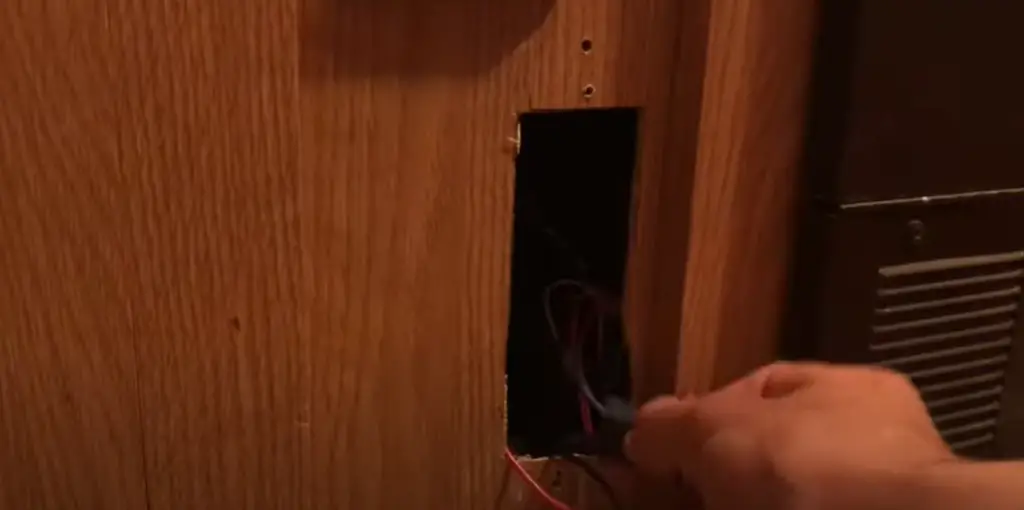
Carbon monoxide is a colorless, odorless gas that is extremely harmful to human health. When inhaled, it combines with the hemoglobin in red blood cells, reducing the amount of oxygen that is transported in the bloodstream. Symptoms of carbon monoxide poisoning can range from mild headaches to severe dizziness, confusion, and even death. This gas is commonly released by propane-powered appliances such as generators, stoves, and furnaces. That is why it is critical to have a carbon monoxide detector in an RV, which can alert occupants of any carbon monoxide leaks, giving them enough time to react and evacuate the vehicle immediately.
In conclusion, the Forest River RV carbon monoxide detector has its pros and cons, but its ability to detect low levels of carbon monoxide, coupled with its digital display, makes it a valuable safety device for any RV owner. While its higher price and sensitivity to low levels of carbon monoxide may be negative for some RV owners, the device’s reliability and accuracy are primary considerations. In any case, having a carbon monoxide detector in your RV is critical for keeping you and your family safe while you travel.
How to Maintain RV Carbon Monoxide Detector
When you are on the road, keeping yourself and your loved ones safe should be your top priority, especially when it comes to the air you breathe. That’s why having an RV carbon monoxide detector is crucial. It helps you monitor the level of this dangerous gas inside your RV, which is critical since carbon monoxide is odorless and invisible to the naked eye. But having a detector is just the first step in ensuring the safety of your passengers. Proper maintenance and care for your RV carbon monoxide detector are essential, so let’s dive into the necessary steps you need to know.
The first thing you should do is to check your detector regularly. Many manufacturers recommend a monthly checkup, and this should be a routine you stick with. While checking, ensure that the detector is functioning correctly and that the batteries are still in good condition. You may also test its alarm to confirm that it’s loud enough in case of exposure to this deadly gas. Inspect the detector thoroughly for any cracks, damages, or signs of wear and tear that may compromise your safety.
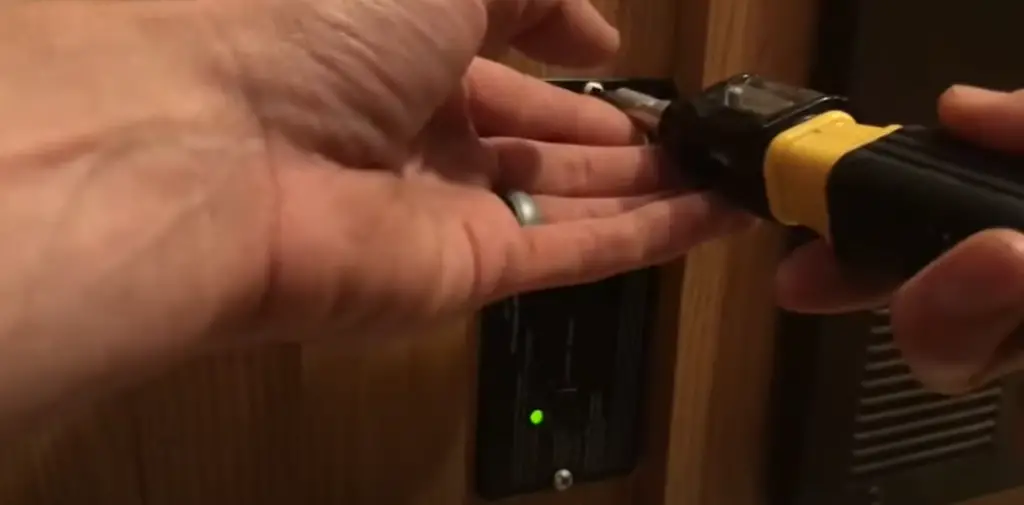
Your RV carbon monoxide detector is a battery-powered device, and its batteries may run out at any time. If the batteries run out, the detector can’t detect any hazardous gas in your RV, and this could be life-threatening. Changing the batteries every six months is a great solution to this problem. Nonetheless, you can change them more regularly for enhanced safety and assurance.
Your RV carbon monoxide detector’s location is crucial. It should not be mounted too close to cooking appliances, generators, or fuel-burning devices. Smoke and heat can trigger the detector’s alarm, which may cause disruptions or confusion. Be sure to read the manufacturer’s instructions carefully and adhere to the recommended distance.
Your RV carbon monoxide detector is essential to ensure the safety of your passengers while you’re out on the road. Nonetheless, it’s not enough to have a detector; proper care and maintenance are necessary to ensure its effectiveness. To recap, regular inspection, battery replacement, location, moisture control, and cleanliness are the most important steps you need to follow. By adhering to these steps, you can ensure your detector works successfully and protect your loved ones from the hidden danger of carbon monoxide poisoning.
FAQ
How do I reset my RV Carbon Monoxide alarm?
To reset your RV carbon monoxide alarm, you need to press the reset button located on the alarm’s front face. However, before you press the button, ensure that you have turned off the power supply to the alarm. Once you press the reset button, wait for a few minutes for the alarm to reset. If your alarm still doesn’t work, replace the batteries with new ones.
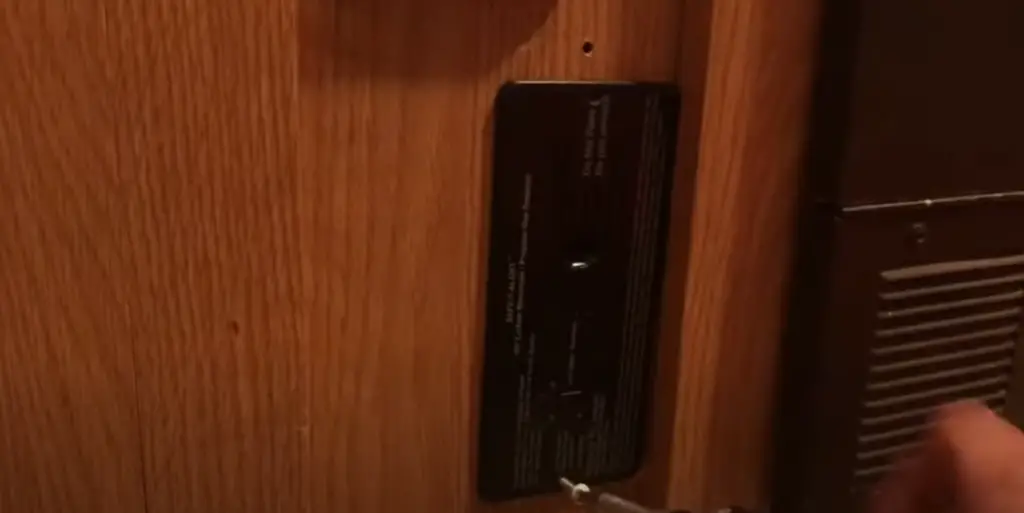
Why is my carbon monoxide alarm saying end?
If your carbon monoxide alarm says “end,” it means that the alarm has reached the end of its life, and you need to replace it. The average lifespan of a CO alarm is between five and ten years, depending on the manufacturer’s specifications. Therefore, it’s essential to check the age of your alarm regularly and replace it when necessary.
How do I turn off my carbon Monoxide alarm?
If your carbon monoxide alarm is beeping and won’t stop, you need to turn off the power supply to the alarm and remove the batteries. However, before you remove the batteries, remember that doing so will turn off the alarm’s ability to detect carbon monoxide. Therefore, use this method only if you’re sure that the alarm is malfunctioning and not detecting any CO.
Can Carbon Monoxide alarms go off falsely?
Yes, carbon monoxide alarms can go off falsely, but it’s rare. CO alarms use electrochemical sensors to detect CO levels, and they may go off falsely if exposed to certain chemicals or high humidity levels. However, modern CO alarms have a false alarm reduction feature, which reduces the chances of a false alarm occurrence.
Useful Video: What To Do If Your Propane Gas Detector Goes Off in Your RV
Conclusions
You can’t compromise when it comes to carbon monoxide safety in your RV. It’s always best to check and ensure your carbon monoxide detector is functioning correctly before embarking on any trip. However, if your detector keeps beeping, don’t panic. Instead, try the above fixes to determine the problem and fix it. If the beeping continues, seek professional help before embarking on any long or unfamiliar trip. Remember, safety first!
References:
- https://www.epa.gov/indoor-air-quality-iaq/what-carbon-monoxide
- https://www.nist.gov/how-do-you-measure-it/how-do-carbon-monoxide-detectors-work#:~:text=When%20carbon%20monoxide%20enters%20the,of%20the%20carbon%20monoxide%20molecules.
- https://camperfaqs.com/rv-carbon-monoxide-detector-keeps-going-off

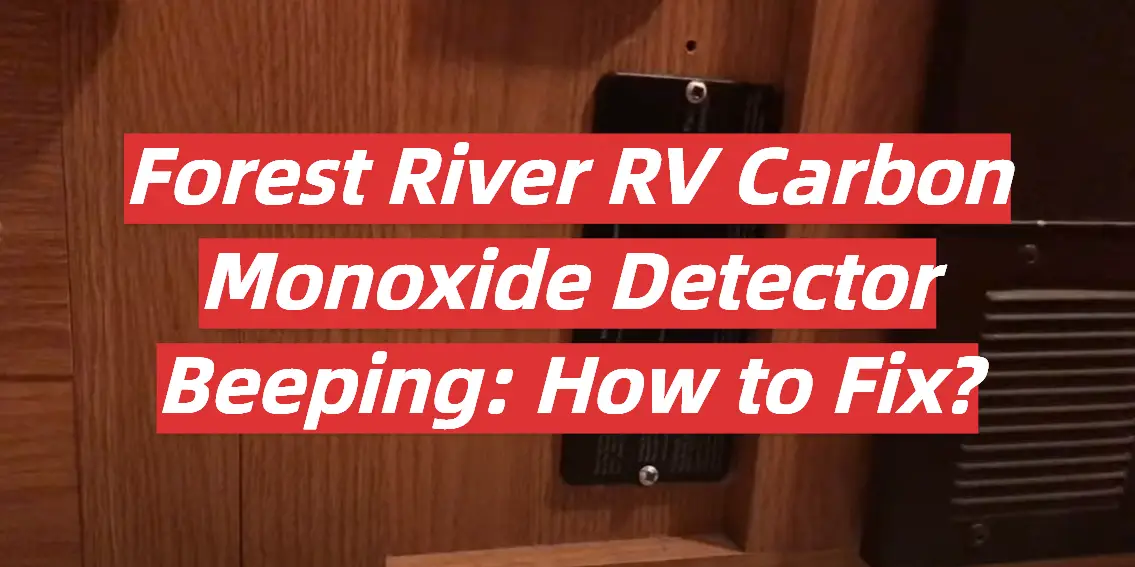
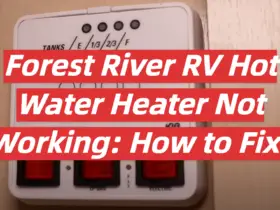
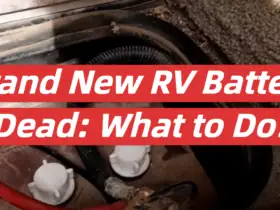
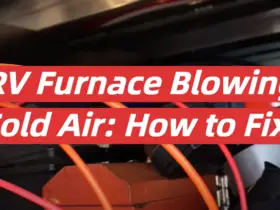

Leave a Reply